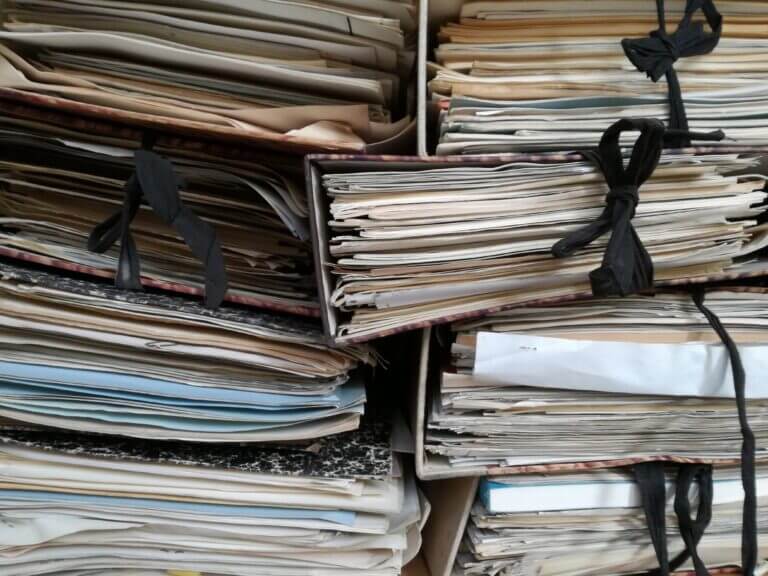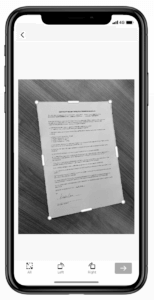A guide to Self Assessment Tax

Dealing with tax, particularly for those considering the transition to a sole trader or already navigating the complexities of self-employment, often doesn't top the list of priorities. However, the HMRC has invested significantly in systems to ensure businesses of all sizes remain compliant. Neglecting the crucial tax deadlines for businesses or inaccuracies in filing can lead to unnecessary headaches and substantial fines. As such, staying ahead of HMRC help with self-assessment is essential for financial peace of mind..
What is a self Assessment?
What is a Self Assessment Tax Return? This guide is an indispensable tool for both the well established long term business and the entrepreneurial individuals on the brink of saying, “I want to set up as a sole trader”. We provide a succinct overview that should never be deferred or overlooked.
For employees, taxes are typically paid through payroll. Yet, for those who have taken the leap into establishing their own venture or have other income streams, it’s imperative to do a self employed tax return. Whether you are navigating the realm of self employment, managing the responsibilities of a sole trader, or operating within a partnership, understanding the intricacies of the self assessment tax return is crucial.
Contents
- Self Assessment Register: Learn how to register for self-assessment and receive your Unique Taxpayer Reference.
- Self Assessment Log In: A step-by-step guide for the self-assessment tax return login, making access to your HMRC records seamless.
- Allowable Expenses: Understanding “what expenses can I include” can significantly lower your tax bill. This section details allowable expenses for sole traders and other businesses.
- Record Keeping: Good record keeping principles are essential. We cover the basics required to stay up to date with your records and receipts.
- Making it Easy: With tips on how to make your self-assessment as easy as possible, we simplify record management.
- Conclusion: Final thoughts on ensuring your self-assessment is accurate and timely, potentially avoiding a late payment self-assessment tax situation.
Still unsure about how to do self-employed tax? The government’s website offers additional guidance on whether you need to fill out a self-assessment tax return. We suggest also checking self assessment deadlines to stay ahead.
Self Assessment register
Even if you’re traditionally employed, circumstances like owning a business, having various investments, or managing rental property means you might still need to navigate the self assessment HMRC register process.
Ready to apply for a unique taxpayer reference? It’s straightforward online. By creating a Government Gateway User ID, which is an essential step for self-employed tax return login, you initiate your journey into self managed tax filings.
Your Unique Taxpayer Reference (UTR)—a crucial piece of information like an ID for your tax records, will be dispatched by post and could take up to 10 days to reach you. This number is pivotal for all your tax dealings, so ensure its security.
Self Assessment log in
Accessing your self assessment account is made easy via the official link. Here, you can review all your previous submissions and monitor current assessments. This is a vital hub for managing your sole trader tax return, should that apply to you.
Keep a vigilant eye on the tax return due date, customarily January 31st. Effective organization and proactive planning are your best defenses against oversights that could lead to penalties for late self assessment tax payments or missing out on allowable expenses self assessment tax return that could save you money.
Allowable expenses self assessment tax return
Understanding what allowable expenses can be recorded to run your business can make a big difference to your bottom line.
Here are a few of the UK allowable self assessment tax return expenses:
Office Property and Equipment
Stationary, phones, mobile, fax and internet bills.
Postage
Printing, Ink Cartridges,
Computer software
Rent, Rates power and insurance costs
Rent for premises
Repair and maintenance of the premises
Business and water rates
Utility Bills
Property insurance
Security
Using part of your home as an office
Vehicle and travel expenses
Vehicle insurance
Repairs and servicing
Parking
Hire Chargers
Fuel
Licence fees
Breakdown cover
Public transport fares such as plane, train bus or taxi
Hotel Rooms
Meals on overnight business trips
Clothing expenses
Uniforms
Protective clothing needed for your work
Costumes for actors and entertainers
Staff Expenses
Employee and staff salaries
Bonuses
Pensions
Benefits
Agency fees
Sub-contractors
Employers National Insurance
Training costs related to your business
Reselling goods
Goods for resale
Raw Materials
Direct costs from producing goods
Legal and financial costs
Hiring of accountants
Solicitors
Surveyors and architects.
Professional indemnity insurance premiums
BroadBand, Credit card and various other financial charges
Interest on bank and business loans
Hire purchase interest
Leasing payments
Public liability insurance
Marketing entertainment and subscriptions
Advertising
Website costs
Subscription to trade or professional journals
Trade body or professional membership related to your business.
In your self-assessment tax return, it’s crucial to include allowable expenses for sole traders and businesses to optimize your tax responsibility. This encompasses office expenses like stationary and home office costs, as well as rent and rates.
Don’t overlook professional costs like accountant fees, or legal and financial costs, which are part of running a business. Moreover, marketing expenses and digital upkeep like website costs also qualify. Understanding and claiming these expenses accurately is fundamental to reducing your tax bill and enhancing your business’s financial health.
For a detailed guide on allowable expenses for sole traders and small businesses, consult the comprehensive article provided by Which?
This resource offers up to date information, helping you to navigate through what expenses can be included in your tax returns.
Record keeping
Maintaining comprehensive record keeping for taxes is imperative for any business owner. The thought of sifting through financial documents from years past is daunting and an inefficient use of a professional’s time. While you aren’t required to submit receipts with your self assessment tax return, HMRC may request them to verify the expenses you can claim.
To simplify self assessment record keeping, it’s wise to embrace digital solutions. Utilising cloud accounting software for storing your self assessment expenses can be a game changer. Services like Dropbox, which stands out in the cloud storage market, allow you to organize and retrieve receipts quickly. With this technology, you can access your financial documentation from any location with internet connectivity, ensuring you’re always prepared for tax purposes.
How to make your self assessment as easy as possible.
Enhancing the ease of your self assessment tax return starts with cultivating strong organizational habits. Securely store all your receipts, invoices, bills, and bank statements, categorising them by the appropriate tax year. This practice not only streamlines your record keeping but also prepares you for potential audits.
Leverage modern technology by using apps like Cam Scanner to quickly capture and format images of your receipts and documents while on the move. This app turns your smartphone into a powerful tool for self employed tax documentation.
Further simplify your administrative tasks by syncing your documents with cloud storage solutions such as Dropbox. This integration allows for seamless record keeping for small businesses, making management of self assessment expenses a breeze. With your financial records orderly and easily accessible, completing your self assessment tax online login and filings becomes significantly less daunting.
For more practical advice on maintaining financial documents, including how long to keep them and the benefits of digital record-keeping, visit this detailed guide to record keeping for small businesses by Sage

Conclusion
If the process of managing your self assessment tax return seems too daunting, consider the benefits of hiring professional help. Utilising accountant services for small business or self employed tax advice can streamline your financial planning. These experts are adept at navigating the complexities of HMRC regulations and can ensure your accounts are handled with utmost efficiency.
Remember, every business, whether a sole trader or a larger entity, must navigate this process. Devoting the necessary time to get it right is crucial in avoiding penalties for late self assessment tax. By choosing the right support, whether through accountant services or robust self management, you can ensure compliance and minimise the risk of fines.
Need help with your car?
Post a job for free
Automotive Wheel Refurbishment
Automotive Upholstery and trimming
Automotive Fabricator
Automotive Suspension Alignment
Automotive Carbon Composite
Automotive Coach Builder
Race car Data Engineer
Engine Builder
Automotive Fibreglass Composite
Automotive Dyno Technician
Automotive Gearbox Specialist
Automotive Transportation
Automotive Electrician
Automotive Turbo Specialist